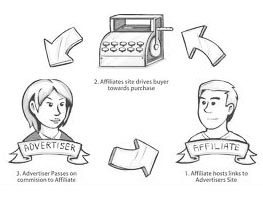ITEMS
- name 2
- name 1
Monday, October 20, 2014
Saturday, October 4, 2014
7 Body Language Tricks To Make Anyone Instantly Like You
And, according to Leil Lowndes in her book "How To Talk To Anyone," you can capture - and hold - anyone's attention without even saying a word.
We've selected the best body language techniques from the book and shared them below:
The Flooding Smile
"Don't
flash an immediate smile when you greet someone," says Lowndes. If you
do, it appears as if anyone in your line of sight would receive that
same smile.
Instead, pause and look at
the other person's face for a second, and then let a "big, warm,
responsive smile flood over your face and overflow into your eyes."
Even
though the delay is less than a second, it will convince people your
smile is sincere and personalized for them. According to Lowndes, a
slower smile can add more richness and depth to how people perceive you.
Sticky Eyes
"Pretend your eyes are glued to your conversation partner's with sticky warm taffy," Lowndes advises.
Even after they've finished speaking, don't break eye contact. "When
you must look away, do it ever so slowly, reluctantly, stretching the
gooey taffy until the tiny string finally breaks." This technique will
help you appear more intelligent and insightful.
You
can also try counting your conversation partner's blinks. In a case
study, subjects reported significantly higher feelings of respect and
fondness for their colleagues who used this technique.Epoxy Eyes
In
a group of people, you should watch the person you are interested in,
no matter who else is talking. If you concentrate on that person even
when they are simply listening, you show that you are extremely
interested in his or her reactions.
The Big-Baby Pivot
People
are very conscious of how you react to them. When you meet someone new,
turn your body fully toward them and give them the same, undivided
attention you would give a baby. Lowndes says, "Pivoting 100% towards
the new person shouts, 'I think you are very, very special.'"
Limit the Fidget
If
you want to appear credible, try not to move too much when your
conversation really matters. "Do not fidget, twitch, wiggle, squirm, or
scratch," Lowndes says. Frequent hand motions near your
face can give your listener the feeling that you're lying or anxious.
Instead, simply fix a constant gaze on the listener and show them that
you're fully concentrated on the matter at hand.
Hang By Your Teeth
This visualization trick will help you look
more confident with your posture, which Lowndes describes as "your
biggest success barometer." To do this, visualize a leather bit hanging
from the frame of every door you walk through. Pretend that you are
taking a bite on the dental grip, and let it sweep your cheeks into a
smile and lift you up.
"When you hang by your teeth," Lowndes says, "every muscle is stretched into perfect posture position." Your head will be held high, shoulders back, torso out of your hips, and feet weightless.
This
trick also works because of the frequency people walk through doorways.
If you visualize anything often enough, it becomes a habit. "Habitual
good posture is the first mark of a big winner."
Hello, Old Friend
When
you first meet someone, imagine they're your old friend. According to
Lowndes, this will cause a lot of subconscious reactions in your body,
from the softening of your eyebrows to the positioning of your toes.
An added benefit to this technique is that
when you act as though you like someone, it becomes a self-fulfilling
prophecy - you might really start to like them. Lowndes says, "What it
boils down to is love begets love, like begets like, respect begets
respect."
sorce : bunsinessinsider
Saturday, September 27, 2014
Enough wishing . Time for some action
You Don’t Need More Information – You Need More Action

I know because I’ve been guilty of it myself. Maybe you can relate.
Have you ever found yourself wanting to do something… like write a book, start a business, create a nonprofit or pursue an idea? Or maybe you follow others who have done it and you find yourself wishing you could emulate their success.
In those cases what do we normally do? We have an idea and we start to seek out information on HOW to make that idea into a reality. We read books, we follow gurus, we read blogs, we listen to podcasts, sometimes we buy products, etc. We seek and we consume, which in and of itself is awesome and needed to help us learn… but then many of us don’t take action.
It’s when we consume and keep consuming without applying what we’ve learned that we have a problem.
We’re learning but what good is knowledge without action?
Like feasting at a buffet, if we sit down and just gorge ourselves… we’ll eventually be bloated and fat unless we get up from the table and move.
Let’s be honest, you probably don’t need more information. You likely already know WHAT you need to do, at least you know enough to get started. The real problem is STARTING isn’t it?
It’s a lot easier to keep following everyone else, watching their success and wishing it were your own. It’s something totally different to want it bad enough to do the work that it takes for you to be successful. It might require sacrifice or putting yourself outside of your comfort zone. That’s hard.
The worst part is when you look back and realize that it’s been months, maybe years that have passed by. Good intentions turned into mild frustrations cloaked in excuses.
I’m just too busy. I don’t know how to ___. Why would anyone listen to me? What if I fail?
I’m here to tell you that you CAN. You don’t have to be the smartest, the most tech savvy, the most efficient, good looking or possess some sort of super-human skill, you just need to start taking action… even if that initial action is small.
Small actions over time create big results. - Tweet ThatI’ve worked with a lot of successful people over the years and the primary trait that they have in common is that they START. They gather enough necessary information to make an informed decision and they take action on it. They don’t wait forever and talk about it day after day, they do it. They don’t wait for “some day,” they start today. They know that they won’t have it 100% figured out and that’s okay because they also know that it’s a process of learning and improving as they GO.
Let’s do this together…
Stop waiting. Stop over analyzing everything. Perfection is a myth so don’t let the pursuit of it get in your way. Show your fear who is boss and tell it to hush when it tries to tell you lies about yourself, your idea and why you “can’t” do it.
Action begets action. Inaction leaves you living in regret.
Decide today that things are going to be different. Make a commitment to yourself and your calling. Even if it’s just an hour per day or every other day, find a way to take action. Give up an hour of TV, wake up early, stop checking Facebook or Twitter so much, avoid letting convenient distractions get in the way (because they’re an excuse too). Use that time to act. Apply what you know. Do something. Get started and don’t give up.
Success may not come easy but it will never come at all unless you take action.
source : Danieldecker
Wednesday, September 24, 2014
In 1999, Alibaba's CEO Told Employees 2 Things They Needed To Do To Be Successful: Beat Americans And Work Longer Hours
inShare36
Bloomberg
Jack Ma giving a speech to his employees in 1999 from his apartment
There were two key takeaways:
- Alibaba needed to beat Americans, in particularly Silicon Valley, and learn their hard work ethic.
- Alibaba employees needed to out-innovate competitors and put in longer days than everyone else. Ma told his employees than an 8 AM - 5 PM day would not cut it.
Today,
we are all here to discuss what we should do in the next 5 to 10 years.
So what will Alibaba become in the future? Since we are working on
China Pages, I've always said our competitors are not domestic websites
but oversees websites. Our competitors are not in China but in Silicon
Valley.
So first, we
should position Alibaba as a global website not just a domestic website.
Second, We need to learn the hard-working spirit of Silicon Valley. If
we go to work at 8 AM and go home at 5 PM, this is not a high-tech
company and Alibaba will never be successful. If we have that kind of
8-5 spirit, then we should just go and do something else.
Americans
are strong at hardware and systems. But on information and software,
Chinese brains are just as good as theirs. All of our brains are just as
good as theirs. This is the reason we dare to compete with Americans.
If we are a good team and know what we want to do, one of us can defeat
tons of them. We can beat government agencies and big famous companies
because of our innovative spirit. Otherwise what is the difference
between us and them?
Everyone
knows the Internet is a bubble. It keeps getting bigger and bigger but
when will it burst? Yahoo's stock will fall and eBay's stock will rise.
And maybe after eBay's stock rises Alibaba's stock will rise.
So
don't worry. The dream of the Internet won't burst. We will have to pay
a painful price in the next 3-5 years. It is the only way we can
succeed. So the goal is Alibaba will IPO in 2002Monday, September 22, 2014
5 Lessons Entrepreneurs Should Learn From Mukesh Ambani
Purba Das :
Dream big!
The man inherited his father and India's iconic business leader Dhirubhai Ambani's genes when it comes to dreaming big. In 90s, Ambani, then in his 30s, had dreamt of becoming the largest producer of polyester fibre and yarn in the world and he actually did it. Today, RIL is the largest producer of polyester fibre and yarn in the world, with a capacity of 2.5 million tonnes per annum, beating the traditional producers from South Korea and Taiwan, who had dominated the business since 1970s.
Do more, say less!
The quote by Israelmore Ayivor is apt for Mukesh Ambani. The 57 year old likes to keep a low profile. He isn't keen on social dos and neither is he voicing opinions on important economic issues at events such as the World Economic Forum. But still, he is one of the most talked about personalities in the country. Ambani's focus has always been his business and this entrepreneur is credited for the creation of the world's largest petroleum refinery at Jamnagar in Gujarat besides other successful ventures. Need we say more?
Depend on no one!
A feudal style of management is not the mantra today. And Mukesh Ambani realised it even before feudalism was out of the system. Ambani in an interview had said that he did not want "people carrying their wisdom in notebooks as if it some kind of secretive operations". While he has a trusted team of a few people, who have played a pivotal role in the growth of his empire , Ambani has always emphasized on the importance of being involved in one's own business. Well, no wonder he managed to create an empire with net worth of Rs1,76,766 crore in 2012-13.
Don't panic, stay strong!
Mukesh Ambani joined his father's business at a very young age. While he was still learning the nuances of the business, he lost his uncle and his father's business partner Rasikbhai in 1986. This was followed by Dhirubhai Ambani's stroke within five months of his uncle's death. Ambani then had to take his father's place and steered the company forward at a time when India still had Licence Raj.
Keep your eyes open
Mukesh Ambani keeps his eyes wide open when it comes to hunting for new ventures. During the announcement of Reliance Jio initiative, Ambani had clearly said, "Today I see a billion people as a billion potential consumers, an opportunity to generate value for them and to make a return for myself". With start-ups mushrooming in the country, Ambani has now turned his eye at it and will soon be seen mentoring technology start-ups that spawn billion-dollar businesses in the country.
Saturday, September 20, 2014
4 Things Young Self-Made Millionaires Have In Common
4 Things Young Self-Made Millionaires Have In Common
source : business insider
As
it turns out, there are a few key characteristics that set certain
people up to earn big early on, according to Peter Voogd, founder of the
Game Changers Academy, who made his first million before turning 26.
"You don't make a million by accident," he says in a recent LinkedIn post. "If it's not a goal you sure as hell won't hit it."
Here are four vital traits young, successful millionaires share, as observed firsthand by Voogd:
1 . They have a sense of urgency.
Young
millionaires become successful so early in life because they constantly
work toward success instead of waiting for opportunities to come to
them. "Now matters more than any other time, and the 'someday isle'
mentality is killing so many dreams," Voogd says. Millionaires make
monetary success a top priority from day one instead of pushing it to
the back burner as something they'd like to achieve someday.
2 . They find a strong mentor.
Millionaires
don't reach that status alone, and even self-made millionaires find
smart, wise mentors to guide them as they build their careers. "Success
rises and falls on who you associate with, so make sure you stay aware
of your surroundings," Voogd says. Learning from those who came before
you is key to making the right business decisions, and a good mentor
will challenge you and help you focus on bigger thinking, Voogd adds.
3 . They focus on leverage.
Time
is money, and while the traditional method of trading your time for a
proportional payment will earn you a decent salary, it won't make you a
millionaire. "At some point you have to focus on scaling and leverage,"
Voogd says. "Investment properties, membership sites, building a brand,
partnerships, affiliate marketing, different types of programs, etc."
Young millionaires maximize their time to make sure they're always
earning as much as possible.
4 . They don't care what other people think.
"People
who care what others think of them will always be limited to others'
opinions," Voogd says. Young millionaires don't waste time trying to
please people who don't believe in them or win over those that don't
support them. Instead, they focus on their own vision and learn to
believe in themselves. To become truly successful, "you must give up the
need to be liked by everybody," Voogd warns.
Tuesday, September 9, 2014
10 Creative Ways To Make Money Online
10 Creative Ways To Make Money Online
By Joel Brown : source : Addicted2Success.com.If you’d claimed it was possible for the average guy on the street to make millions of dollars online just a decade ago, the chances are good you’d have heard nothing but laughter in response. Today, though, there are countless Internet millionaires who turned a great idea into obscene profit, used the power of the web to promote their offline business or simply worked their butt off to sell their skills online.
While it’s unlikely that you’ll ever earn enough to buy your own private island, there’s nothing to stop you from using your skills to make a comfortable living online. In fact, while the media would have you believe that online success stories are limited to just a few lucky, hard working people who stumbled on a great idea that went on to make millions, the reality is that there are tens of thousands of people who make a living exclusively online. Here are just ten ways you can join them.
How To Make Money Online
1. Sell Stock Photography
 The
Internet has caused an explosion in the demand for stock photography.
As the number of media and commercial outlets has increased dramatically
with the growth of online media there’s an enormous need for high
quality stock photos.
The
Internet has caused an explosion in the demand for stock photography.
As the number of media and commercial outlets has increased dramatically
with the growth of online media there’s an enormous need for high
quality stock photos.Yuri Arcurs is the man everyone turns to for their stock photo needs. As the world’s top selling stock photographer he sells an image every 8 seconds, 24 hours a day (that works out to over 4 million images each year). Arcurs makes millions of dollars each year simply by being the best at what he does. There are lots of great photographers in the world and the barrier to entry is as low as ownership of a camera, but Arcurs has managed to build a reputation online for consistent, high quality and imaginative images.
If you’re a professional photographer (or even just a hobbyist) you should consider the possibilities of selling stock images online.
2. Tweet For Sponsors
 SponsoredTweets.com is an online platform that allows you to make money on Twitter by
charging sponsors for communicating their advertising messages to your
followers. You set the amount you want to get paid for every tweet you
make, choose a category and select keywords you want to work with. You
then wait for advertisers to contact you and take you up on your offer,
paying you the amount you specified for each tweet that you make.
SponsoredTweets.com is an online platform that allows you to make money on Twitter by
charging sponsors for communicating their advertising messages to your
followers. You set the amount you want to get paid for every tweet you
make, choose a category and select keywords you want to work with. You
then wait for advertisers to contact you and take you up on your offer,
paying you the amount you specified for each tweet that you make.All throughout the process, the tweeter has full control over his or her account, and may choose the wordings of the tweets, or may choose to reject the tweet altogether.
3. Blog for Ad Revenues
 If,
however, you already have a blog with a devoted following it should be
easy for you to leverage your readers into hard cash. Ad networks such
as Google AdSense pay big money to place their
ads on your site, and you’ll receive a payment every time a reader
clicks one. While it’s easy to go overboard and fill every spare pixel,
if you place your ads well it’s possible to make a comfortable income
from your site.
If,
however, you already have a blog with a devoted following it should be
easy for you to leverage your readers into hard cash. Ad networks such
as Google AdSense pay big money to place their
ads on your site, and you’ll receive a payment every time a reader
clicks one. While it’s easy to go overboard and fill every spare pixel,
if you place your ads well it’s possible to make a comfortable income
from your site.One of the most successful bloggers around today is John Chow, a Canadian blogger who makes more than $40,000 a month through ad sales and other revenue streams. Ironically, his blog is about ways to make money online.
4. Sell Affiliate Products
 If
you have a flair for sales copy you could try your hand at selling
products for affiliates. While many people take the seedy route of
selling diet pills and penis enlargement products, if you want to keep
your conscience clear you’ll find that Amazon runs a very successful
affiliate program that allows you to make money advertising any of the
products for sale on their site. eBay also have a pretty good affiliate
setup, with their top affiliates earning $1.3 Million a month, WOW!
If
you have a flair for sales copy you could try your hand at selling
products for affiliates. While many people take the seedy route of
selling diet pills and penis enlargement products, if you want to keep
your conscience clear you’ll find that Amazon runs a very successful
affiliate program that allows you to make money advertising any of the
products for sale on their site. eBay also have a pretty good affiliate
setup, with their top affiliates earning $1.3 Million a month, WOW!5. Write an e Book
 In
recent years the self-publishing world has exploded online to the point
at which you don’t even have to run your own site in order to promote a
book. Amazon, Barnes & Noble and Kobo are just a few of the sites
on which you could self-publish today, with commission rates of around
70% available on every sale.
In
recent years the self-publishing world has exploded online to the point
at which you don’t even have to run your own site in order to promote a
book. Amazon, Barnes & Noble and Kobo are just a few of the sites
on which you could self-publish today, with commission rates of around
70% available on every sale.The number of eBooks on Amazon reached 8 million last year, and Amazon stated that eBooks are outselling hard backs 2 to 1, 62% of ebook sales fell into the Thriller and Mystery genre, so if you feel that you could pull this style of genre off then you will be in for a good chance of sales.
26 year old self published author, Amanda Hocking from Minnesota makes more than $2 Million a year from her ebook sales. Amanda Hocking’s stories about, trolls, vampires and zombies and ‘supernatural teen romances’ sell for $2.99 or for as little as $.99.
6. Become a Virtual Assistant
 Every
small businessman would love to hire a full time assistant to take care
of the little things, but many simply can’t afford one. Thanks to the
Internet, though, they can now hire part time assistants who work for a
whole host of clients, and all at a much lower cost than a full time
staff member.
Every
small businessman would love to hire a full time assistant to take care
of the little things, but many simply can’t afford one. Thanks to the
Internet, though, they can now hire part time assistants who work for a
whole host of clients, and all at a much lower cost than a full time
staff member.If you work from home this may be a perfect opportunity to make a consistent income. Virtual assistants can earn $20 an hour in return for booking travel tickets, interacting with clients and dealing with the daily needs of small businesses.
7. Lease Your Skills
 Most people have at least one skill that carries a market value, though until now that skill may have been impossible to monetize in the traditional job market.
Most people have at least one skill that carries a market value, though until now that skill may have been impossible to monetize in the traditional job market.Sites such as 99Designs, Elance, Freelancer and iWriter allow people to hire out their skills as writers, coders, designers, translators and lots more on a contract basis. Freelancing sites are a great way to boost your income in your free time, and with enough motivation and hard work you could find yourself earning a comfortable full time income from them.
8. Selling on eBay
 eBay
is a great way to turn your unwanted things into a little spending
money, but it isn’t just a place to sell your old Star Wars action
figures. In fact, eBay’s global marketplace can offer a great way for
canny traders to buy and sell their way to profit. By buying wholesale
you can sell anything with a mark up. Even better, if you have the
skills to make things people want to buy you could start your own
home-based craft business, selling to customers around the world.
eBay
is a great way to turn your unwanted things into a little spending
money, but it isn’t just a place to sell your old Star Wars action
figures. In fact, eBay’s global marketplace can offer a great way for
canny traders to buy and sell their way to profit. By buying wholesale
you can sell anything with a mark up. Even better, if you have the
skills to make things people want to buy you could start your own
home-based craft business, selling to customers around the world.Matt & Amanda Clarkson are a successful couple who so far have managed to make over $8 Million in eBay sales.
9. Become A Mobile App Tester
 People that are rather uncertain of their application development potential can still make some money through the usage of iPhone apps.
People that are rather uncertain of their application development potential can still make some money through the usage of iPhone apps.People that have the time and desire to test iPhone apps and discover bugs can be rewarded payments for their efforts. uTest is one such application. Individuals that have signed up will also build some reputation on the basis of the testing they have done so far.
Better reputation signifies access to more profitable app testing opportunities.
10. Designing T-Shirts
 Finally,
if you have something of an artistic streak you could kick off the next
viral sensation with your own range of funky, arty t-shirts. Sites such
as CafePress allow users to upload their own t-shirt designs and sell them on their personal online store.
Finally,
if you have something of an artistic streak you could kick off the next
viral sensation with your own range of funky, arty t-shirts. Sites such
as CafePress allow users to upload their own t-shirt designs and sell them on their personal online store.You can also contact distributors such as threadless.com or designbyhumans.com to release your t-shirt designs to the masses.
If your designs catch the eye you could be looking at enormous profits when they take off in a big way.
Checkout our article The Top 10 Tips On Starting Your Own Successful Clothing Line, this should give you an idea on how to kick things off.
Conclusion
As you can see, to make money online you don’t have to be particularly skilled with computers. You don’t need to be know how to build your own website from the ground up, and you don’t have to be a mogul with millions of dollars to invest in success. If you have any kind of artistic skills, creativity or business savvy you can turn it into profit.In short, you should understand that the online world is just like real life. The same opportunities are there for the taking, but instead of drawing your customers from just your home town you can reach out with your great ideas to the far reaches of the earth.
So why not start today?
Wednesday, July 16, 2014
22 Lessons From Stephen King On How To Be A Great Writer
In his memoir, "On Writing," King shares valuable insights into how to be a better writer. And he doesn't sugarcoat it. He writes, "I can't lie and say there are no bad writers. Sorry, but there are lots of bad writers."
Don't want to be one of them? Here are 22 great pieces of advice from King on how to be an amazing writer:
1. Stop watching television. Instead, read as much as possible.
If you're just starting out as a writer, your television should be the first thing to go. It's "poisonous to creativity," he says. Writers need to look into themselves and turn toward the life of the imagination.
To do so, they should read as much as they can. King takes a book with him everywhere he goes, and even reads during meals. "If you want to be a writer, you must do two things above all others: read a lot and write a lot," he says. Read widely, and constantly work to refine and redefine your own work as you do so.
2. Prepare for more failure and criticism than you think you can deal with.
King compares writing fiction to crossing the Atlantic Ocean in a bathtub, because in both, "there's plenty of opportunity for self-doubt." Not only will you doubt yourself, but other people will doubt you, too. "If you write (or paint or dance or sculpt or sing, I suppose), someone will try to make you feel lousy about it, that's all," writes King.
Oftentimes, you have to continue writing even when you don't feel like it. "Stopping a piece of work just because it's hard, either emotionally or imaginatively, is a bad idea," he writes. And when you fail, King suggests that you remain positive. "Optimism is a perfectly legitimate response to failure."
3. Don't waste time trying to please people.
According to King, rudeness should be the least of your concerns. "If you intend to write as truthfully as you can, your days as a member of polite society are numbered anyway," he writes. King used to be ashamed of what he wrote, especially after receiving angry letters accusing him of being bigoted, homophobic, murderous, and even psychopathic.
By the age of 40, he realized that every decent writer has been accused of being a waste of talent. King has definitely come to terms with it. He writes, "If you disapprove, I can only shrug my shoulders. It's what I have." You can't please all of your readers all the time, so King advises that you stop worrying.
4. Write primarily for yourself.
You should write because it brings you happiness and fulfillment. As King says, "I did it for the pure joy of the thing. And if you can do it for joy, you can do it forever."
Writer Kurt Vonnegut provides a similar insight: "Find a subject you care about and which you in your heart feel others should care about," he says. "It is this genuine caring, not your games with language, which will be the most compelling and seductive element in your style."
5. Tackle the things that are hardest to write.
"The most important things are the hardest things to say," writes King. "They are the things you get ashamed of because words diminish your feelings." Most great pieces of writing are preceded with hours of thought. In King's mind, "Writing is refined thinking."
When tackling difficult issues, make sure you dig deeply. King says, "Stories are found things, like fossils in the ground ... Stories are relics, part of an undiscovered pre-existing world." Writers should be like archaeologists, excavating for as much of the story as they can find.
6. When writing, disconnect from the rest of the world.
Writing should be a fully intimate activity. Put your desk in the corner of the room, and eliminate all possible distractions, from phones to open windows. King advises, "Write with the door closed; rewrite with the door open."
You should maintain total privacy between you and your work. Writing a first draft is "completely raw, the sort of thing I feel free to do with the door shut - it's the story undressed, standing up in nothing but its socks and undershorts."
7. Don't be pretentious.
"One of the really bad things you can do to your writing is to dress up the vocabulary, looking for long words because you're maybe a little bit ashamed of your short ones," says King. He compares this mistake to dressing up a household pet in evening clothes - both the pet and the owner are embarrassed, because it's completely excessive.
As iconic businessman David Ogilvy writes in a memo to his employees, "Never use jargon words like reconceptualize, demassification, attitudinally, judgmentally. They are hallmarks of a pretentious ass." Furthermore, don't use symbols unless necessary. "Symbolism exists to adorn and enrich, not to create an artificial sense of profundity," writes King.
8. Avoid adverbs and long paragraphs.
As King emphasizes several times in his memoir, "the adverb is not your friend." In fact, he believes that "the road to hell is paved with adverbs" and compares them to dandelions that ruin your lawn. Adverbs are worst after "he said" and "she said" - those phrases are best left unadorned.
You should also pay attention to your paragraphs, so that they flow with the turns and rhythms of your story. "Paragraphs are almost always as important for how they look as for what they say," says King.
9. Don't get overly caught up in grammar.
According to King, writing is primarily about seduction, not precision. "Language does not always have to wear a tie and lace-up shoes," writes King. "The object of fiction isn't grammatical correctness but to make the reader welcome and then tell a story." You should strive to make the reader forget that he or she is reading a story at all.
10. Master the art of description.
"Description begins in the writer's imagination, but should finish in the reader's," writes King. The important part isn't writing enough, but limiting how much you say. Visualize what you want your reader to experience, and then translate what you see in your mind into words on the page. You need to describe things "in a way that will cause your reader to prickle with recognition," he says.
The key to good description is clarity, both in observation and in writing. Use fresh images and simple vocabulary to avoid exhausting your reader. "In many cases when a reader puts a story aside because it 'got boring,' the boredom arose because the writer grew enchanted with his powers of description and lost sight of his priority, which is to keep the ball rolling," notes King.
11. Don't give too much background information.
"What you need to remember is that there's a difference between lecturing about what you know and using it to enrich the story," writes King. "The latter is good. The former is not." Make sure you only include details that move your story forward and that persuade your reader to continue reading.
If you need to do research, make sure it doesn't overshadow the story. Research belongs "as far in the background and the back story as you can get it," says King. You may be entranced by what you're learning, but your readers are going to care a lot more about your characters and your story.
12. Tell stories about what people actually do.
"Bad writing is more than a matter of shit syntax and faulty observation; bad writing usually arises from a stubborn refusal to tell stories about what people actually do - to face the fact, let us say, that murderers sometimes help old ladies cross the street," writes King. The people in your stories are what readers care about the most, so make sure you acknowledge all the dimensions your characters may have.
13. Take risks; don't play it safe.
First and foremost, stop using the passive voice. It's the biggest indicator of fear. "I'm convinced that fear is at the root of most bad writing," King says. Writers should throw back their shoulders, stick out their chins, and put their writing in charge.
"Try any goddamn thing you like, no matter how boringly normal or outrageous. If it works, fine. If it doesn't, toss it," King says.
14. Realize that you don't need drugs to be a good writer.
"The idea that the creative endeavor and mind-altering substances are entwined is one of the great pop-intellectual myths of our time," says King. In his eyes, substance-abusing writers are just substance-abusers. "Any claims that the drugs and alcohol are necessary to dull a finer sensibility are just the usual self-serving bullshit."
15. Don't try to steal someone else's voice.
As King says, "You can't aim a book like a cruise missile." When you try to mimic another writer's style for any reason other than practice, you'll produce nothing but "pale imitations." This is because you can never try to replicate the way someone feels and experiences truth, especially not through a surface-level glance at vocabulary and plot.
16. Understand that writing is a form of telepathy.
"All the arts depend upon telepathy to some degree, but I believe that writing is the purest distillation," says King. An important element of writing is transference. Your job isn't to write words on the page, but rather to transfer the ideas inside your head into the heads of your readers.
"Words are just the medium through which the transfer happens," says King.In his advice on writing, Vonnegut also recommends that writers "use the time of a total stranger in such a way that he or she will not feel the time was wasted."
17. Take your writing seriously.
"You can approach the act of writing with nervousness, excitement, hopefulness, or despair," says King. "Come to it any way but lightly." If you don't want to take your writing seriously, he suggests that you close the book and do something else.
As writer Susan Sontag says, "The story must strike a nerve - in me. My heart should start pounding when I hear the first line in my head. I start trembling at the risk."
18. Write every single day.
"Once I start work on a project, I don't stop, and I don't slow down unless I absolutely have to," says King. "If I don't write every day, the characters begin to stale off in my mind ... I begin to lose my hold on the story's plot and pace."
If you fail to write consistently, the excitement for your idea may begin to fade. When the work starts to feel like work, King describes the moment as "the smooch of death." His best advice is to just take it "one word at a time."
19. Finish your first draft in three months.
King likes to write 10 pages a day. Over a three-month span, that amounts to around 180,000 words. "The first draft of a book - even a long one - should take no more than three months, the length of a season," he says. If you spend too long on your piece, King believes the story begins to take on an odd foreign feel.
20. When you're finished writing, take a long step back.
King suggests six weeks of "recuperation time" after you're done writing, so you can have a clear mind to spot any glaring holes in the plot or character development. He asserts that a writer's original perception of a character could be just as faulty as the reader's.
King compares the writing and revision process to nature. "When you write a book, you spend day after day scanning and identifying the trees," he writes. "When you're done, you have to step back and look at the forest." When you do find your mistakes, he says that "you are forbidden to feel depressed about them or to beat up on yourself. Screw-ups happen to the best of us."
21. Have the guts to cut.
When revising, writers often have a difficult time letting go of words they spent so much time writing. But, as King advises, "Kill your darlings, kill your darlings, even when it breaks your egocentric little scribbler's heart, kill your darlings."
Although revision is one of the most difficult parts of writing, you need to leave out the boring parts in order to move the story along. In his advice on writing, Vonnegut suggests, "If a sentence, no matter how excellent, does not illuminate your subject in some new and useful way, scratch it out."
22. Stay married, be healthy, and live a good life.
King attributes his success to two things: his physical health and his marriage. "The combination of a healthy body and a stable relationship with a self-reliant woman who takes zero shit from me or anyone else has made the continuity of my working life possible," he writes.
It's important to have a strong balance in your life, so writing doesn't consume all of it. In writer and painter Henry Miller's 11 commandments of writing, he advises, "Keep human! See people, go places, drink if you feel like it."
Monday, July 14, 2014
15 Great Careers With Unconventional Hours
At some point in the grand history of America, it was decreed that everyone was supposed to work for eight hours a day, from 9:00 a.m. to 5:00 p.m. Yet ever since Dolly Parton started belting out her famous anti-9-to-5 anthem, this regulated regimen has gotten major flak.
Whether you think the 9-to-5 is arbitrary, counter-productive or just out of touch with your life priorities (not to mention naturalcircadian rhythm!), you're in good—and growing—company. And even if you can't start a flex-time revolution at your current workplace, you can find plenty of jobs that accommodate a less traditional schedule.
Freelance and consulting jobs are obvious contenders based on the inherent work variety, but careers in healthcare, disaster response, media and travel are also prime candidates for outside-the-box scheduling.
If the 9-to-5 agenda just isn't for you, check out these 15 careers with unconventional hours:
1. Freelance Web Designer
The demand for beautiful and functional Web pages is high. So if you've got the chops, you can set your own schedule, pick your own projects and make the World Wide Web a more awesome place to browse—from the comfort of your couch.
Average Salary: $78,000
2. Nurse
Medical care doesn't stop at 5:00 p.m. As a nurse—as with many medical-related professions—you build your work schedule around flexible shifts. Whether you're a night owl, early bird or non-traditionalist, you've got options.
Average Salary: $66,000
3. Real Estate Agent
Selling homes is a 'round-the-clock business. Working with your clients' schedules, you choose the best times to show off properties. Your on-the-job hours may fall on nights or weekends, but you'll never have a set routine.
Average Salary: $39,000
4. Social Media Consultant
Helping businesses stay up to speed on the latest social media trends keeps you on the move sharing your expertise via project-based work. As a consultant, expect to do your fair share of hustling. The tradeoff? You've got the privilege of setting your own hours and working in your pajamas every once in awhile.
Average Salary: $43,000
5. Political Campaign Manager
During election season, campaign managers work 24/7. Since each campaign is its own intense, unique project, campaign careers are a good match for people who like throwing themselves 100 percent into work for concentrated periods of time, then taking an extended (and well-deserved) break.
Average Salary: $53,000
6. Personal Trainer
This career path keeps you on your toes, puts you face-to-face with clients and lets you set your own hours for individual pump-up sessions and group workouts. Yes, you may still hang out by the water cooler. But it's a totally different atmosphere than a traditional office.
Average Salary: $31,000
7. Air Traffic Controller
Planes take to the skies at all hours, so this job comes with adjustable shift scheduling. The work can be stressful—you've got to hone your concentration skills to keep planes flying safely—but if you're looking for non-traditional hours and a big paycheck, this could be a good fit.
Average Salary: $113,000
8. Graphic Designer
Whether you're designing a new logo for an indie band or working on a branding package for a major corporation, your projects—and hours—can be all over the place. Industry competition can be tough, but if you survive the squeeze, you can score the flexibility you crave.
Average Salary: $44,000
9. Tax Accountant
As an independently operating accountant, you choose to work when you want, where you want and with whom you want. However, most tax accountants' years follow a general pattern: long hours during tax season and a lot of down time in the late summer.
Average Salary: $32,000
10. Makeup Artist
Freelance makeup artists can cash in on irregular hours. Whether you're perfecting a bride's makeup bright and early on her big day or staying late at a glitzy photo shoot, this career doesn't abide by traditional time frames.
Average Salary: $53,000
11. Court Reporter
In this versatile role, you create word-for-word transcripts of speeches, legal battles and other noteworthy events. While some court reporters work in an actual court, others use recordings to work from home. In that case, your hours are your own to dictate—as long as you meet your deadlines.
Average Salary: $48,000
12. Dental Hygienist
Flexibility is the name of the game for dental hygienists. Because single dentists often only need a hygienist a few days a week, most hygienists work at multiple locations. That makes it easier to choose your days off or create a custom schedule of evening, weekend or everything-in-between work.
Average Salary: $69,000
13. Sports Coach
Early morning track practice. Afternoon games on the court. Far-and-wide travels to recruit new players. Whether you're a major league coach or in charge of a high school sports team, this job is sure to extend beyond 9:00 a.m. to 5:00 p.m.
Average Salary: $28,000
14. Travel Guide
Traveling to distant locals will keep you far from a conventional punch clock. To keep your tour members happy, healthy and ready to explore the next monument, you've got to be on your game 24 hours a day. The upside? Enjoying blocks of downtime between each expedition.
Average Salary: $30,000
15. Consultant
Consulting is the granddaddy of flexible career fields. In this role, you swoop in, offer your clients savvy advice and help companies succeed in your area of expertise. Your work will take you from office to office, never staying in one spot—or on one specific schedule—for too long.
Average Salary: $70,000
Brilliant Management Advice From LinkedIn's Billionaire Founder
The days of lifetime employment at a single company are long gone, and the trust between employers and employees is broken.
Companies welcome new hires into their "family," with the caveat that they can be fired at any time for any reason.
Employees profess loyalty but leave the minute a competitor offers a better job offer.
This dishonest relationship, argues LinkedIn cofounder Reid Hoffman, is causing companies to lose their most valuable people at dangerous rates.
In the new book "The Alliance: Managing Talent in the Networked Age," Hoffman and entrepreneurs Ben Casnocha and Chris Yeh explain how employers can attract and retain the best employees through the formation of alliances where everyone wins.
The authors created a presentation outlining their book's main principles, which Hoffman and LinkedIn leaders have used to grow the company into a Silicon Valley powerhouse with a market cap of $20 billion.
Subscribe to:
Posts (Atom)


